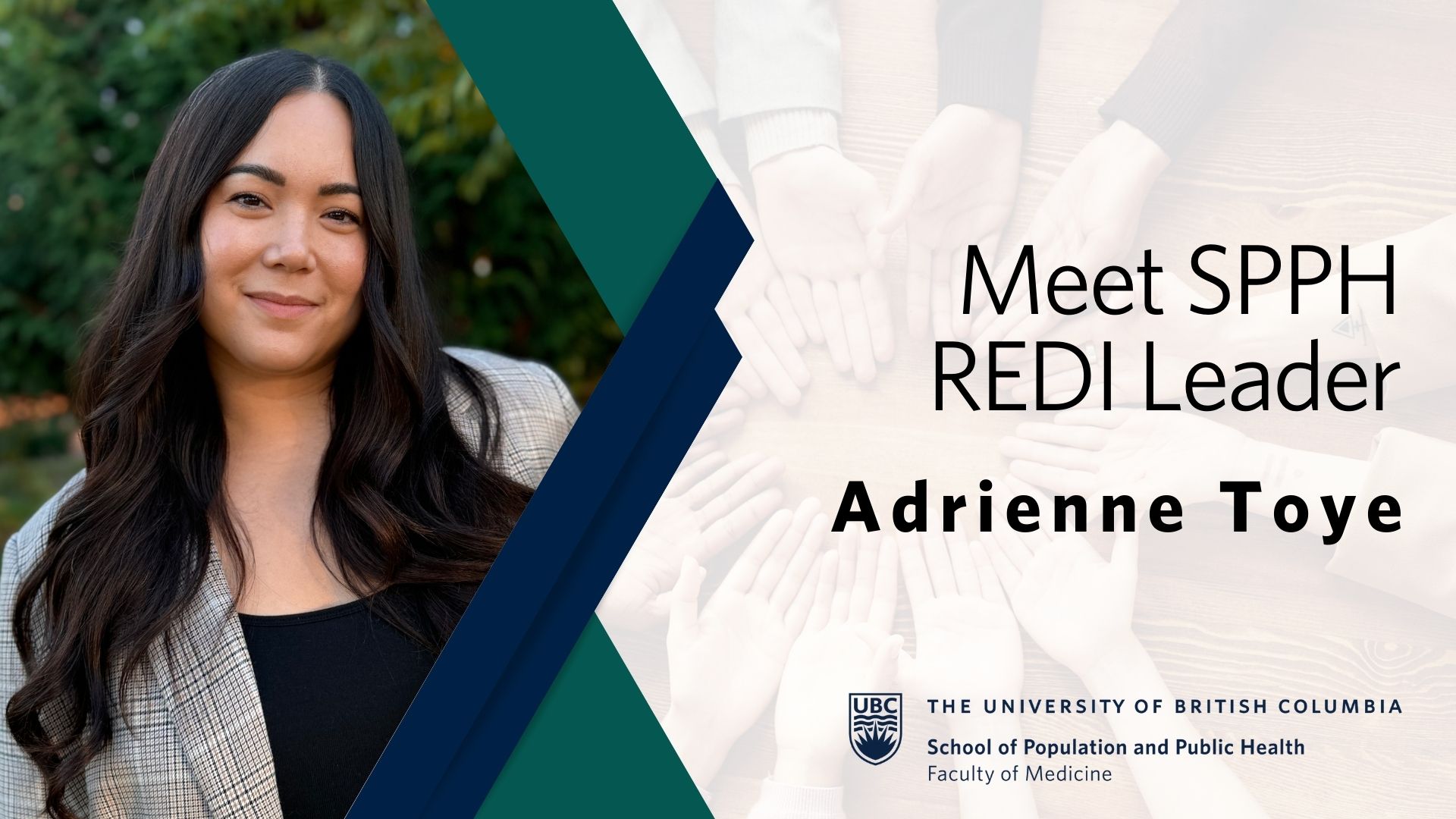
In this REDI Leader spotlight, we speak with Adrienne Toye, Strategic Communications Lead of the Human Early Learning Partnership (HELP) as well as the Chair of HELP’s Diversity, Equity, Inclusion, and Anti-Racism (DEIA) Committee.
Tell us about your background.
I was born in a small community in northern Alberta — I lived there until I was fourteen, and I was one of the only three Asian kids in my entire class at the K-8 school I essentially grew up in. It has taken a long time to reflect back and understand the effects of growing up in an environment with such little diversity — how it shaped my perception of my biracial identity, and the tactics that I’ve subconsciously adopted in an attempt to protect myself from the racism I grew up with. I have learned this was motivated by a hope to be more accepted and valued by others around me.
What motivates you to engage in REDI work?
Beyond my younger school years, I have also been in environments (both professionally and personally) where I’ve noticed my attributes — my ethnicity, gender, age, or all of the above — have affected my value according to others. While this has been difficult to realize and understand, it has also motivated me to incorporate aspects of REDI into my every day work, and seek out environments that build this into their mission.
I also believe it is important to actively reflect on how I have benefited from the effects of colonization on the lands where I have lived, even though I have often felt like I didn’t belong. I recognize that my own sense of displacement doesn’t erase the privileges I’ve received from structures and systems shaped by colonization, and I’m committed to understanding how my presence intersects with that history.
Can you share a project or research you’ve been involved in that promotes REDI?
Since joining the Human Early Learning Partnership (HELP), some colleagues and I have established a Diversity, Equity, Inclusion, and Anti-Racism (DEIA) Committee. While it feels like we are still in the early stages of the committee’s work, I think we have been successful in creating a safe space for HELPers to gather and have conversations about these concepts, learning from each other and sharing our own stories, such as through our happy hour book club discussions.
What role do you see yourself playing in improving REDI in population and public health?
HELP’s vision is rooted in equity: for all children to be thriving in healthy societies, and our committee wants to see that extended into the working environment at HELP. Whether that means creating a culture where everyone can feel seen, valued, and heard, or developing and implementing strategies to enhance DEIA practices in all aspects of HELP’s activities, we hope that we can make changes that HELPers can be proud of when they think about their workplace.